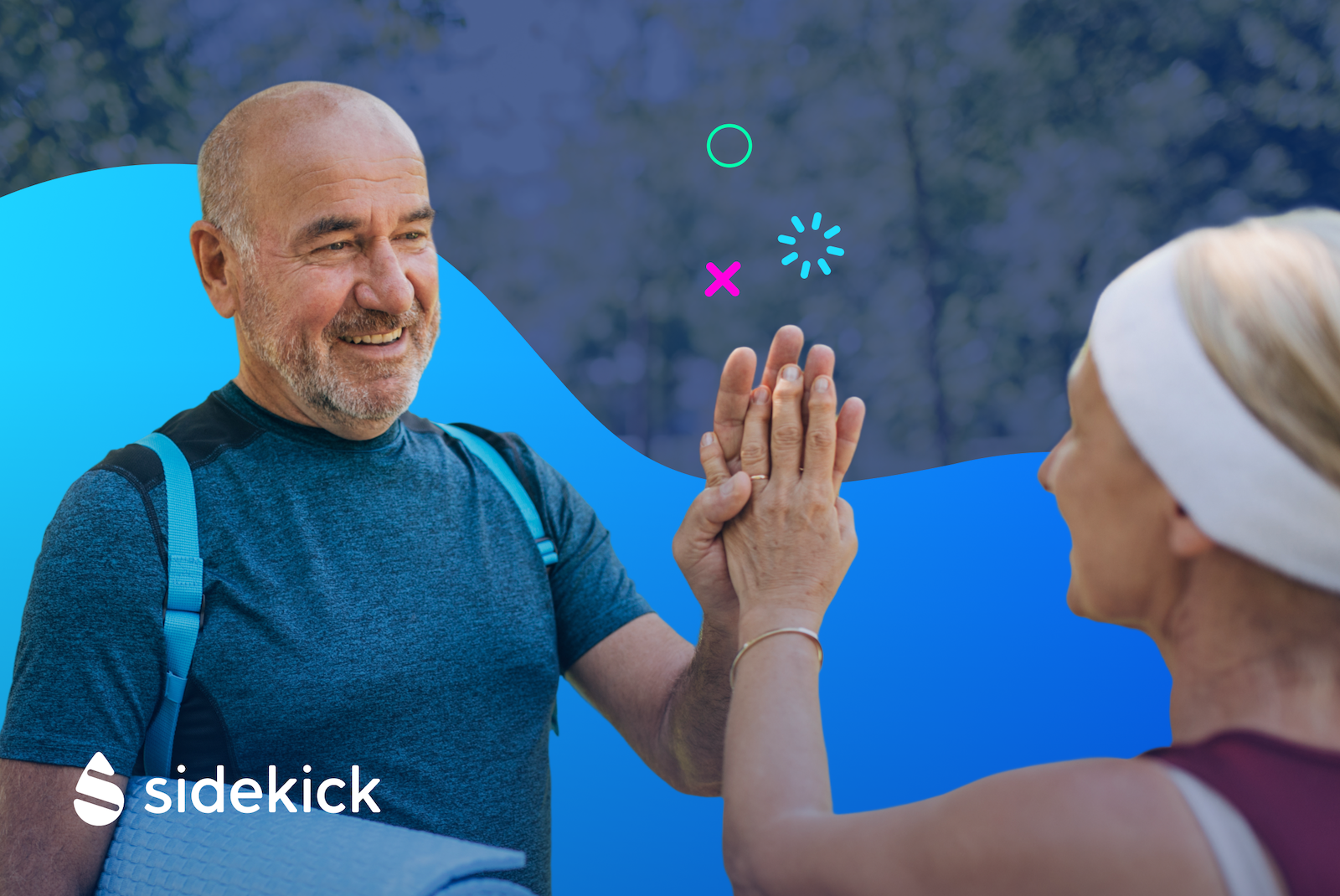%201%20(1).jpg)
Making Self-Care Easier: How Digital Solutions Enhance Health Literacy, with Dr. Kristine Sørensen
“On average, 50% of Europeans lack the health literacy to maintain and promote their health,” says Dr. Kristine Sørensen, President of the International Health Literacy Association. In an interview with The Sidebar, she reveals how digital health technologies can contribute to better health and well-being.
Health literacy is the ability of individuals to find, understand, and use information and services to make health-related decisions and actions. Every day, we are confronted with choices that influence our health. For example, when buying food, cooking, working, spending free time, taking medicines. Hundreds of such micro-decisions make a significant impact on our lives and well-being. But in the era of the internet and information overload, it’s difficult to follow reliable recommendations that fit our individual needs and situation.
The cost of missing health skills
“According to the latest research, people with low health literacy have higher mortality. It refers to patients living with chronic diseases but also to how citizens are following disease prevention recommendations,” explains Dr. Sørensen. “Before the first studies in this area were published, we didn’t expect that health literacy would be such a neglected challenge even in Europe’s wealthiest societies with good education and healthcare systems.”
The consequences are severe: reduced level of health and well-being, the rise of non-communicable diseases, medication non-adherence, delayed diagnosis, and avoidable financial losses for healthcare and the economy. For example, in the UK, it is estimated that 5–20% of the yearly NHS budget is wasted due to low health literacy.
“We shouldn’t blame citizens that they don’t know how to navigate in health systems. It’s the health systems, services, and products that must be changed to get people on the right track,” highlights Dr. Sørensen.
The public health sector has to learn a lot about supporting citizens to change their behavior, educate, and inform in an understandable way. Also, digital health can be one of the pieces of the solution.
“We have to take advantage of the connecting power of digital health.”
While the Internet democratizes access to knowledge, digital solutions can democratize healthy habits, empowering citizens and engaging them in their health and well-being.
“During the COVID-19 pandemic, many patients with chronic diseases started to look for support in online patient groups. Before March 2020, digital technologies were used mostly by frontrunners who are always actively adapting the new trends like mobile health apps. But recently, it has become a new normal to exercise at home,” says Dr. Sørensen.
Many individuals realized that they are responsible for their health; they can do a lot by changing their personal behavior, whether wearing a mask in public places or paying attention to eating healthily. Digital solutions have great potential to contribute to better health literacy. However, Dr. Sørensen points out one fundamental condition: instead of developing digital products and services for people, they should be developed with people.
This people-centered design assumes a more integrative approach in which the end-users are engaged in every stage of the development, from the design, prototyping, and testing, to the final launch. She also hopes that this approach, which is already being implemented by innovative companies, will also be commonly used in the public sector.
The digital factor becomes a casual part of healthcare
“We are seeing transformation in self-care, which can now be enhanced by fitness apps and health trackers, as well as disease prevention and health promotion digital tools. Mobile apps play the role of digital assistants that remind us about an appointment with a doctor, to take medicine, or do exercises. I believe we are in the middle of an enormous transformation. Such tools will become the new normal, especially in countries with a national digital system that enables the sharing of individually collected data,” adds Dr. Sørensen.
In her opinion, it’s essential to improve digital infrastructure and access to the Internet to avoid digital inequalities. Besides, we have to keep strengthening digital health literacy – the ability to use new technologies – so everybody can benefit from these new technologies. On top of that, we shouldn’t neglect the group of people that can’t be reached using digital tools. The health system must offer alternatives and find a way to enhance their health literacy.
Dr. Kristine Sørensen adds: “If digital technologies are to impact society’s health positively, developers have to understand people’s needs, make the solutions so easy and good that they will become an invisible, integral part of our everyday lives. To the extent that we no longer talk about ‘digital therapies,’ ‘e-health,’ or ‘digital health’ — but only about health.”
“The Scottish Health Literacy Action Plan 2017–2025 has been called ‘Making it easier.’ If we make health services and products easy, we will succeed,” she concludes.
Dr. Kristine Sørensen is the President of the International Health Literacy Association and Executive Chair of Health Literacy Europe. Her educational background is in medicine, public health, and global health diplomacy. She is also a member of the World Health Organization (WHO) Technical Advisory Group on Health Promotion in the SDGs.
Get more interviews and digital health news delivered directly to your inbox, by signing up for The Sidebar newsletter. (Don’t worry, you can unsubscribe at any time.)
About the author

Artur Olesch
Artur Olesch is a Berlin-based freelance journalist and correspondent for digital health-related topics.



.svg)




.jpg)


.jpg)

.jpg)

.jpg)
.jpg)




.jpg)
.jpg)
.jpg)



.jpg)
.jpg)
.jpg)
.jpg)

.jpg)
%201%20(1).jpg)



.jpg)

.png)
.jpg)
.jpg)


.jpg)


.jpg)

.png)

%201%20(1).jpg)


.jpg)


.jpg)
.jpg)
.png)
.jpg)
.jpg)

.jpg)
.png)

.jpg)

.jpg)



.jpg)
.jpg)
.jpg)
.jpg)
.jpg)
.jpg)
.png)



.jpg)
.jpg)
.jpg)

.jpg)
.jpg)
.jpg)

.jpg)
.jpg)


.jpg)

.jpg)
%201%20(1)%20(1).jpg)
.jpg)
.jpg)

.jpg)


.jpg)


%201%20(1).jpg)
%201%20(1)%201%20(1).jpg)